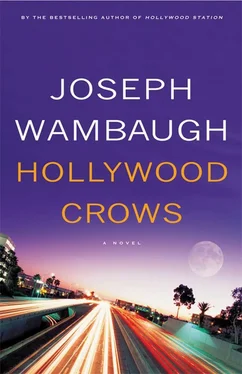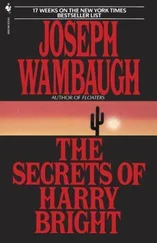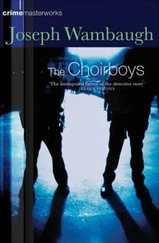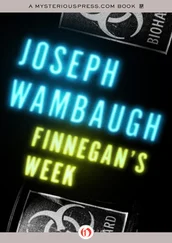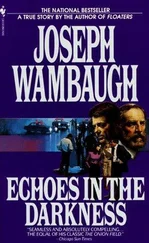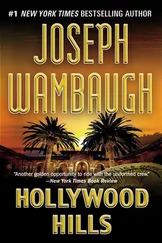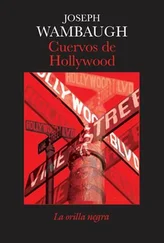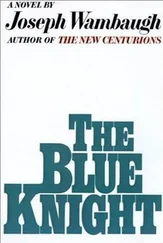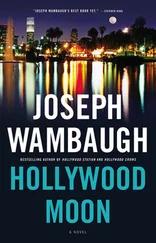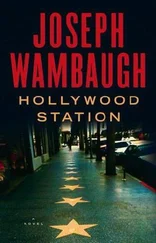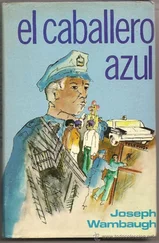“This is a quality-of-life issue,” Flotsam said to the mother of five, whose English was better than most.
“I do not understand,” she said.
“We got officers who deal with this kind of thing,” Flotsam said. “They work in the Crow office.”
“Like the bird?”
“Well, yeah, same name,” Jetsam said. “See, they warn people and then write citations if they do stuff like blocking alleys in the neighborhood.”
“I can sympathize,” Flotsam said. “I mean, you can’t even use the alley because of thugs. Your kids have to bob and weave their way to school just to get through yellow tape.”
She understood the allusion to yellow tape. She’d seen plenty of it strung across crime scenes since migrating to Los Angeles.
“How do I call to this crow?” she asked.
“I’ll tell one to call you tomorrow when you get home from work,” Flotsam said. “You can tell them about the problem.”
When they cleared from that call, Jetsam decided to drive to the alley and have a look. The body shop was closed and there was only one security light on in the front of the building. Those at the rear were burned out or had been broken by vandals.
Jetsam pulled the car up near a chain-link fence where cars were stored, awaiting repair. He got out and shined his light around, lighting up empty oil drums, wooden crates, a Dumpster, and hopelessly damaged car tires and wheel rims.
“These fucking mini-lights!” he said. “If I ever get chalked because I couldn’t get enough light, it’s gonna be the police commission and the chief who really killed me. Remember that, bro, and seek revenge.” Jetsam shined his light up at the window eight feet above the alley floor and began looking for something to stand on.
“What’re you looking for anyways?” Flotsam asked, not bothering to get out of their black-and-white.
“That woman said there were lots of cars blocking the alley and I noticed that the shop didn’t seem big enough to do that kind of business.”
“So?”
“So I was wondering about the rest of the businesses in this little strip. Like, the place next door has no sign on it. I was thinking the body shop might use that part of the place to work on the cars. If they use stuff like welding torches and flammable cylinders in a space that’s only separated by a plasterboard wall from some dwelling units, there might be a fire ordinance that could be cited to close them down. See?”
“Lemme lock in on this shit,” Flotsam said, genuinely perplexed by his partner’s behavior until the answer came to him. After a moment he said, “I get it!”
“You get what?” Jetsam said, as he stood on a wooden box and then on top of an empty oil drum to shine his light into the window of the building next to the shop.
“This is all about Ronnie Sinclair!” Flotsam said. “She’s working Hollywood South now. You wanna run over there tomorrow and get some face time with the Crow sergeant and show how you’re all obsessed about quality-of-life crap. So maybe he’ll consider you next time there’s an opening. And then, if dreams really do come true, you might even get to be Ronnie’s partner. And she eventually might not find you as repulsive as she does now. Like, I’m on it, dude!”
Jetsam would have been really steamed by Flotsam’s accurate assessment of his motives, but he was too busy being surprised by the business at hand. He said, “Bro, climb on up here and look what’s inside.”
“Don’t keep me in suspense,” Flotsam said, not budging. “Enlighten me.”
“This whole place is a wide-open storage and repair area. There must be a couple thousand square feet of floor space in there.”
“So?”
“So I’m looking at six SUVs. New and almost new. A Beemer, a Benz, a Lexus, and, let’s see, I can’t tell what the others are. It’s too dark.”
“Dude, this is a body shop. Did you expect these Armenians to be storing olives and goat cheese in there, or what?”
“I’m just sayin’,” Jetsam mumbled, still peering in the window. Suddenly, he turned and said, “Bro, they ain’t Armos.”
“Okay, so what are they?”
“I can see a newspaper on a workbench right down below this window. I think it’s in Arabic. I think they’re Arabs.”
“Now I know why you don’t have the word detective on your badge, dude. News flash: We got thousands and thousands of camel fuckers in L.A. So what?”
“I know what they’re up to, bro.”
“Lemme guess. They’re al Qaeda operatives?”
“They’re repainting and selling hot SUVs. I’m calling the auto theft detail tomorrow morning soon as I get up.”
“Why don’t you go all radically CSI on me and start looking for stuff with DNA on it? I don’t mind sitting here while you sleuth around. Maybe you’ll find O.J.’s knife or Robert Blake’s gun.”
“Do you think they really could be al Qaeda?” Jetsam said.
While Jetsam was annoying his partner with his sleuthing, Ali Aziz was counting the crowd at the Leopard Lounge and ranting at his black bartenders, his white cocktail waitresses, and even his Mexican dishwashers. Ali wasn’t worried about his rant upsetting his customers. All of them were men whose rapt attention was focused on a pair of topless dancers in G-strings, writhing around metal poles while music blared from a sound system that had cost Ali $75,000, even though he’d gotten a special discount from a customer who’d needed cash prior to beginning a prison sentence for fencing stolen property.
Ali Aziz had employed all manner of bartenders, both male and female: whites, Asians, Mexicans, now two black men whom he was going to fire next week, and even a man from the Middle East. They were all thieves, Ali Aziz believed. Ali’s bartenders and his cocktail waitresses wore starched white shirts, black bow ties, and black trousers, but Ali always said that if bartenders served drinks completely naked with a manager watching them, they would find a way to steal from him.
Of course, Ali also thought that the U.S. government stole from him, as well as the state of California, as well as the city of Los Angeles. He fought back by keeping two sets of books for both nightclubs he owned, one with the real income, the other for IRS auditors. Whenever possible in years past, Ali had bought liquor from the addict burglar he knew as Whitey Dawson, whom he had met shortly after coming to America thirty years earlier, when Ali was twenty-two years old. He’d gotten word that Dawson had overdosed on heroin and died, and Ali was prepared to deal with Dawson’s protégé, Leonard Stilwell. But soon even Leonard had stopped coming.
Of course, a prosperous businessman like Ali Aziz did not trust the late Whitey Dawson or Leonard Stilwell any more than he trusted his bartenders, and far less than he trusted his estranged wife, Margot, the thought of whom filled him with rage. Ali had always made sure that any liquor that came from thieves like Whitey Dawson was picked up by a friend or an acquaintance of one of Ali’s Mexican busboys. Or by someone else not directly connected to Ali or to his businesses.
“You, Paco!” Ali yelled at a Mexican who was busy cleaning the table at the largest banquette.
The Mexican, whose name was Pedro, not Paco, had been employed by Ali for six months and said, “I come, boss.”
“Where is my goddamn key? My key ain’t on my desk!”
“I don’…I don’…” Pedro couldn’t remember the English word for comprendo, his brow knitting into furrows. He kept his eyes lowered, fixed on Ali’s diamond pinkie ring and on his huge gold watch as Ali shook a finger in the Mexican’s face.
“Do not be so stupid!” Ali said. “Key. Llave. ” Then Ali muttered, “Goddamn Mexican. I speak in Spanish. I speak in English. Goddamn stupid Mexican.”
Читать дальше
